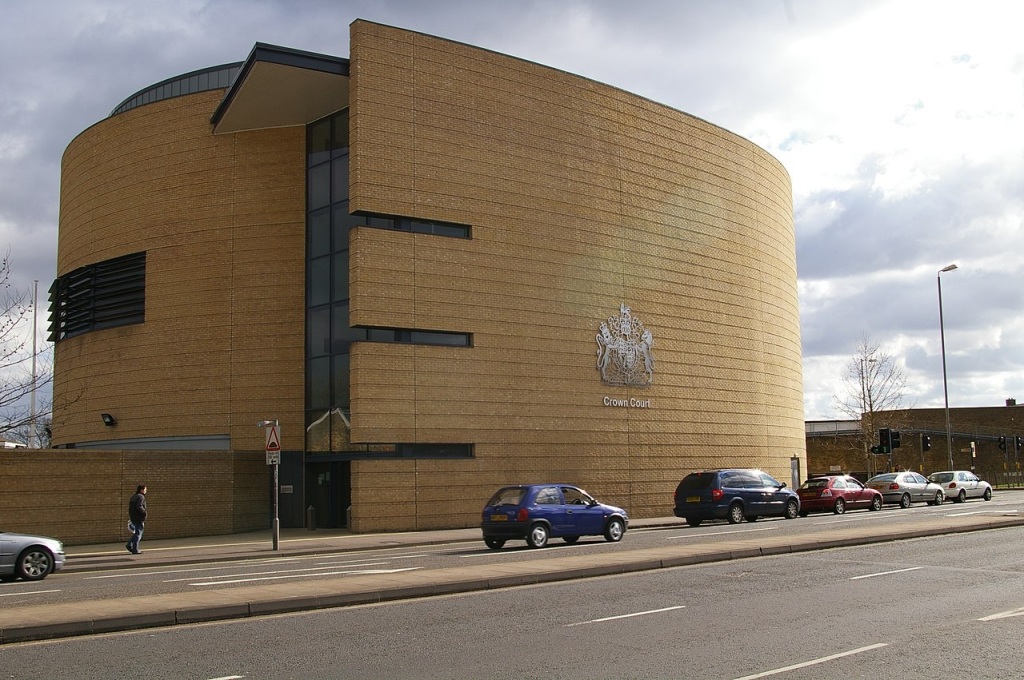When I arrived at Cambridge Crown Court for jury service there was a queue. Like everyone else who came into the building I emptied my pockets into a plastic tray and submitted my bag for scrutiny by one of the security guards.
“Is that sealed?” he asked, pointing to my plastic water bottle.
“No,” I replied.
“Please take a sip, sir.”
I did as I was told then walked through the body scanner, collecting my stuff and walking on to the reception area where my name was crossed off a list. On the opposite wall there was an electronic sign listing the cases due to be heard in the building’s three courtrooms.
“Through there, love,” said a warm Northern Irish voice belonging to one of the guards. She held open the security door for me. “Upstairs on the third floor you’ll find the Jury waiting room.”
If you’ve ever done jury service before you’ll know that there’s an awful lot of hanging around waiting. This was the first working day of the year, so the spacious room was full of people chatting, looking at their phones or reading paperbacks. Three new cases meant three new juries to be selected, 36 out of the assembled 50 or so. Some of us would be sent home later that morning, not having been picked: disappointed or delighted.
I found one of the few empty window seats and sat down, taking in the panoramic view of a wet and grey East Road. I had mixed feelings about being called up to do my civic duty. I hate being cooped up in cramped rooms with strangers. But being a small cog in the judicial machine would be an interesting new experience. At the start of a new year it would be refreshing to do something completely different. And not have to work for a bit.
After quite a long time one of the court’s friendly ushers explained what would happen to us that morning. She handed out a form for us to fill in, explaining that one of the cases would be a longer one, so if there were any reasons why we could not commit to, say, four weeks of jury service, rather than two, we should write them down on the form.
I couldn’t think of any serious reason to opt out. My company were ok with me taking time off.
In a throwback to Covid times, the jury allocation process was played out on a big tv, linked to the courtroom, where the judge, barristers and clerks sat waiting. As our names were called out we had to stand in front of the tv and repeat back our own names to the judge. Then we were immediately led out by an usher, down corridors and up flights of stairs, to sit in our designated seat in the courtroom jury box. I was Number 3, so sat 3rd from right in the front row of 2.
Once we had all assembled, including two substitute jurors, the judge thanked us for being there and explained what would happen next. The names of the witnesses in the case were read out, as well as the location of the alleged crime. This was to check that none of the jurors had a connection with them (they didn’t).
Then the swearing in: we didn’t have to stand up for this, unlike in the movies. One by one we read from the cards provided (religious or other): “I swear by almighty God” or “I solemnly, sincerely and truly declare and affirm that I will faithfully try the defendant and give a true verdict, according to the evidence.”
In the forensic glare of the courtroom this suddenly felt very serious and real. I glanced at the defendant in the dock: big, short beard, bald, grey-blue waistcoat and tie. Was he a rapist? And was that his mum in the public gallery glaring at us like Myra Hindley’s mugshot? It was scary to be suddenly made responsible for someone’s future. This was going to be gruelling.

